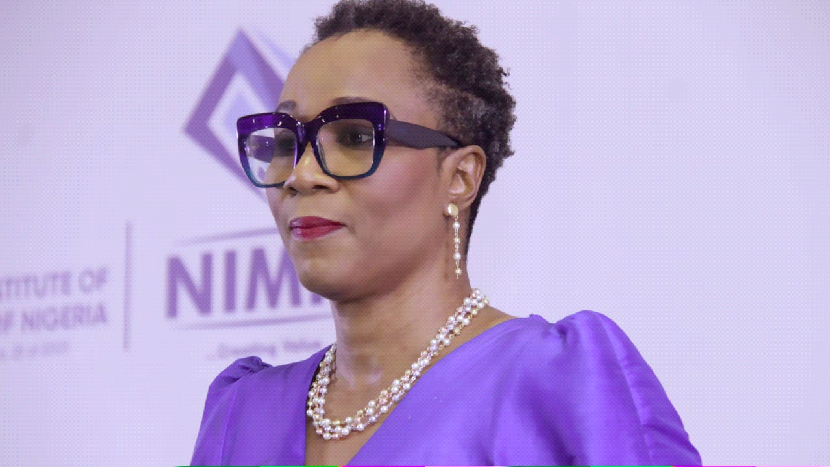
The Executive Vice Chairman, Verdant Zeal Group and Convener the ‘Innovention’ Series, Tunji Olugbodi, has argued firms that adopt AI in today’s marketing strategies are not just ahead of the curve — they are setting benchmark for the future.
Speaking at the 12th ‘Innovention’ Series, he observed, “as we stand on the verge of a new digital era, we can no longer view artificial intelligence as a distant, futuristic technology reserved for tech companies alone. Instead, AI has become a powerful tool with real-world applications, particularly in marketing. From running a small startup to managing a multinational brand, the potential of AI is available to us today.”
Saying the journey of marketing has evolved from traditional, one-size-fits-all approaches to highly personalised, data-driven strategies, he observed AI stands at the centre of this transformation.
To Olugbodi, marketing professionals are no longer relying on assumptions about what customers want, but AI has led to understanding preferences with laser-like precision, often before they even know it themselves.
In the past, he recalled marketing campaigns were largely based on intuition or historical data. But now, with the power of AI, “businesses can analyse vast amounts of real-time data to make smarter, faster decisions.
From predictive analytics to natural language processing.
AI offers marketers the ability to anticipate trends, deliver personalized content, and optimize campaigns like never before.”Asking why AI is so critical for modern marketing, he added the answer lies in today’s customer: “Digitally savvy, empowered, and expecting brands to deliver personalised experiences tailored to their individual needs. AI helps brands meet these expectations by processing large datasets to deliver timely, relevant, and engaging content, which leads to improved customer loyalty and, ultimately, higher revenue.”
Describing AI as catalyst for excellence in marketing, he added, “it helps businesses identify opportunities, predict outcomes, and personalize customer interactions at scale. The key here is personalization. With AI, we are no longer sending blanket messages into the void, hoping something resonates. We can now deliver the right message to the right person at the right time, with personalized offers, product recommendations, and content that meets their individual preferences.” He identified concrete examples where AI has driven marketing excellence.
With specific reference to chat bots, he noted this tool allow businesses to engage with customers 24/7, providing instant support and ensuring that no customer inquiry goes unanswered.
These AI-driven bots, he explained, not only reduce response times but also learn from customer interactions to improve over time, enhancing customer satisfaction while driving down operational costs.
Speaking further, he said brands like Netflix and Spotify use AI to recommend content based on user preferences, which has resulted in enhanced user engagement and satisfaction. This level of personalisation, he argued, would be impossible without AI.
Olugbodi also added routine tasks like sending out emails, posting on social media, or managing ad campaigns can now be automated, freeing up human resources to focus on more strategic activities.
The beauty of AI, he added, lies in its ability to scale human expertise, allowing businesses to do more with less and produce far superior outcomes than ever before.
To Olugbodi, “beyond individual business outcomes, AI is making a profound impact on society at large. Through smarter and more efficient marketing, businesses are better able to meet the needs of their customers, foster trust, and contribute to more meaningful connections in the digital age. AI’s impact is evident in the growing importance of data-driven decision-making. As more organisations harness AI to process vast amounts of data, leaders can make more informed decisions about where to allocate resources, how to engage customers, and which products or services to prioritise. This leads to better outcomes, not just for the business, but for consumers and society at large.”
AI-driven algorithms, he explained, now play crucial role in curating content, whether it’s recommendations on streaming platforms, social media feeds, or news aggregators.
While this has raised important discussions about ethics and bias, he noted it has also allowed businesses to deliver more relevant and engaging experiences for their users.
At societal level, he argued the potential for AI to contribute to areas such as healthcare, education, and sustainability cannot be understated. Saying AI has the potential to drive campaigns that educate, empower, and inspire individuals to take action on important global issues — from climate change to public health in marketing, he insisted AI can help amplify messages that matter and ensure they reach the right audience.
Allaying fears about AI, he stated it is not something to be feared, but rather embraced as a powerful tool that can help reach new heights in marketing efforts. In conclusion, he advised, “the future belongs to those who are willing to innovate, experiment, and continuously improve through technology.”






